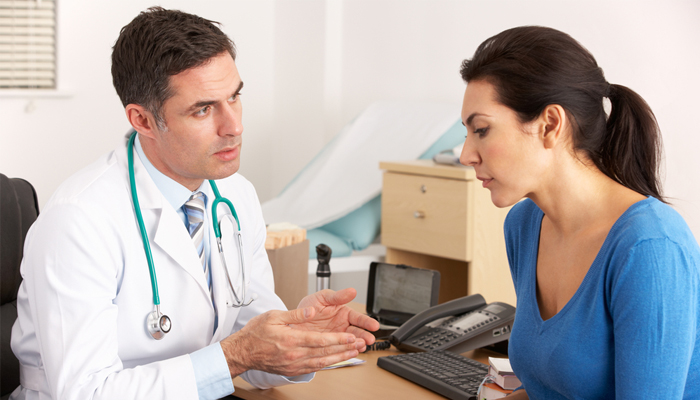Inevitably, cell phones have introduced an advanced communication channel between the service providers and patients. But, the advantages of mobile devices go beyond the communications channels. Mobile apps enable a better coordination, build a bridge of trust, and enhance diagnostic accuracy. In spite of the benefits, some healthcare providers are afraid of integrating mobile phones, as well as tablets into their day-to-day practice. There are multiple reasons behind it and one of them may be resistance to change. However, many of them are ready to embrace the changes. Before discussing the key benefits of mobile medical apps, let’s dig into some facts about them.
- 97,000+ health and fitness applications are available for both tablets and mobile.
- 15% of phone users between the age of 18 to 29 have health apps installed on their mobile.
- 8% of phone users between the age of 30 to 49 have medical apps on their phones.
- 52% of smartphone users collect health-associated information on their cell phones.
- 60% of smartphone users might download the health apps by 2018.
What about doctors? Do they believe in these apps?
- 40% of doctors trust that mobile technology can lessen the number of visits to a clinic.
- Over 25% of physicians are utilizing medical apps to deliver patient care.
- 93% of physicians accept mobile apps can enhance patient’s health.
3 Key Benefits Of Mobile Medical Apps
1. Track Personal Health Data on Health Apps: By using medical mobile apps, it is possible to track personal health data as mentioned below:
- Mobile Medical ID Information: Those documents that are related to your health can be crucial for yourself and your family. They contain the necessary information, such as emergency contact information, medications, allergies, etc. Moreover, it is a great method for caregivers to stay systemized since 30% of mobile health (mHealth) users are caregivers.
- Mobile Fitness Tracking: It is possible to keep track of your fitness routine, as well as find new workout recommendations.
- Emergency Health Communication: Some mobile features and health apps permit you to contact help instantly. For instance, an app might automatically dial your emergency contact with just one tap.
- Heart Rate and Vitals Monitoring: You can get an idea of your vitals, including sleep patterns or heart rate, with your smartwatch, smartphone, or any other mobile device. A mobile application, such as CardiHealth, that enables individuals to track their vital signs, including blood pressure, heart rate, and symptoms can be an efficient method for heart disease prevention.
- Healthcare Management: Connect with your insurance provider or doctor with the help of mobile. You can even utilize your smartphone for scheduling the appointments in some cases.
- Calorie Counter and Nutrition Planning: Regulate what you eat and understand more about your diet by using nutrition and diet apps. Moreover, many of them can offer new healthy tips.
- Prescription Medication Reminder: You can easily track the medications you need to take. Also, it is possible to set up reminder notifications to make sure you don’t miss your schedule.
2. Real-time communication: Undoubtedly, the obvious advantage of mobile apps in healthcare is the enhancement of communication. Doctors, as well as nurses, can analyze the patient’s condition remotely with the help of HD cameras. Frequent instant communication between the patients and providers also builds rapport.
However, the advantages of mobile applications in healthcare reach far beyond the doctor-patient relationship. It is also focusing on the collaboration, consultation, and sharing of knowledge worldwide. Specialists from all around the world can consult each other instantly in order to learn and share. Ultimately, the patients can have the benefit of information sharing. As per a report, 35% of Americans access an online healthcare portal, whereas 14% use email for the communication with a primary care health specialist.
3. Improve Physician Efficiency: Exceptionally functioning specialists are the backbone of a dynamic healthcare system. However, it is a stressful job. As per AMA (American Medical Association), approximately 60% of emergency doctors feel burned out. They quite often complain about spending a huge amount of time in data entry, along with other administrative tasks. They only get 27% of their time for the patients. To fight against this issue, service providers are discovering methods to make the job less stressful. Here, tablets and phones are helping them to resolve the problems in a fast manner with less stress.
Doctors can simply use the mobile devices, in order to record the patient history with minimal chances of errors. These devices give better access to recent drug information, thus helping them to make better decisions. Moreover, a lot of mobile paperwork can free up specialists’ time. Doctors can have the detail of every patient at their fingertips. As a result, have to devote less time to give the similar level of care.
Conclusion
The interaction between the doctor and patient plays an essential role in healthcare delivery. In fact, this is a significant challenge while regulating patients remotely. But, in the era of mobile app technology, it is not burdensome to bridge the gap between patients and doctors.

